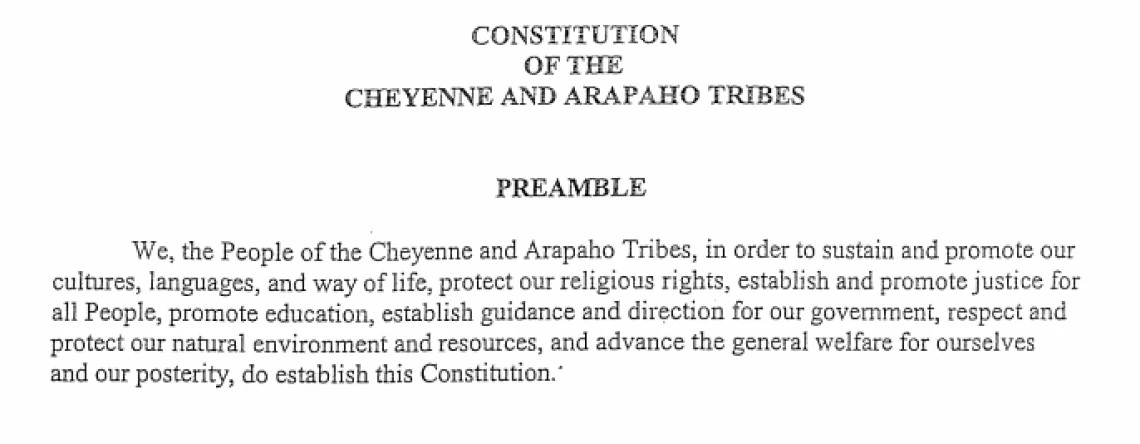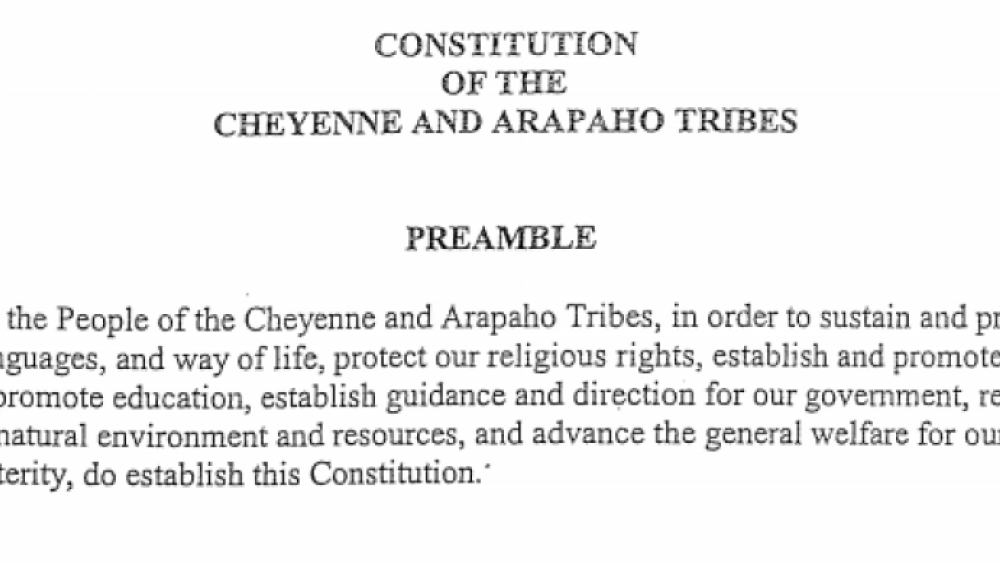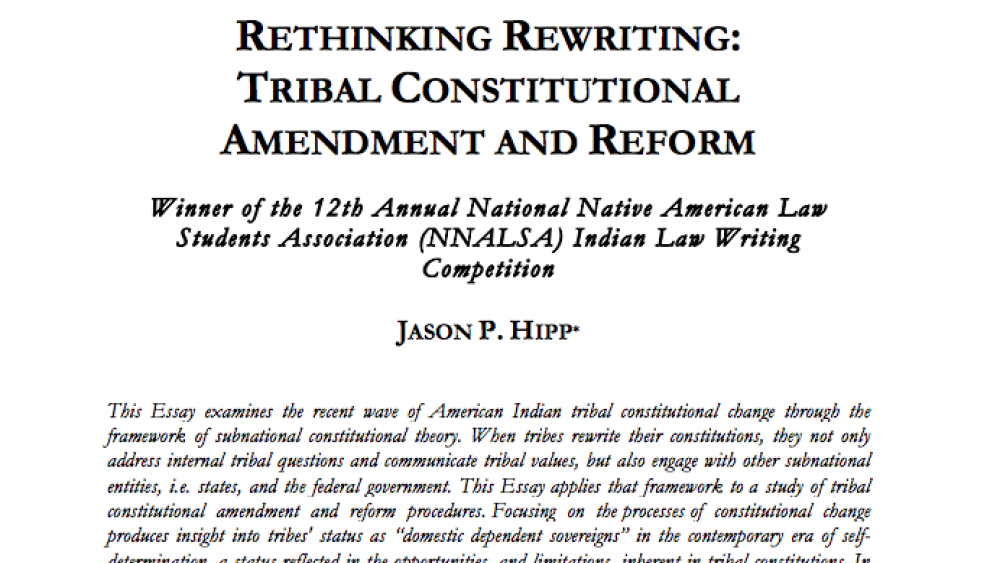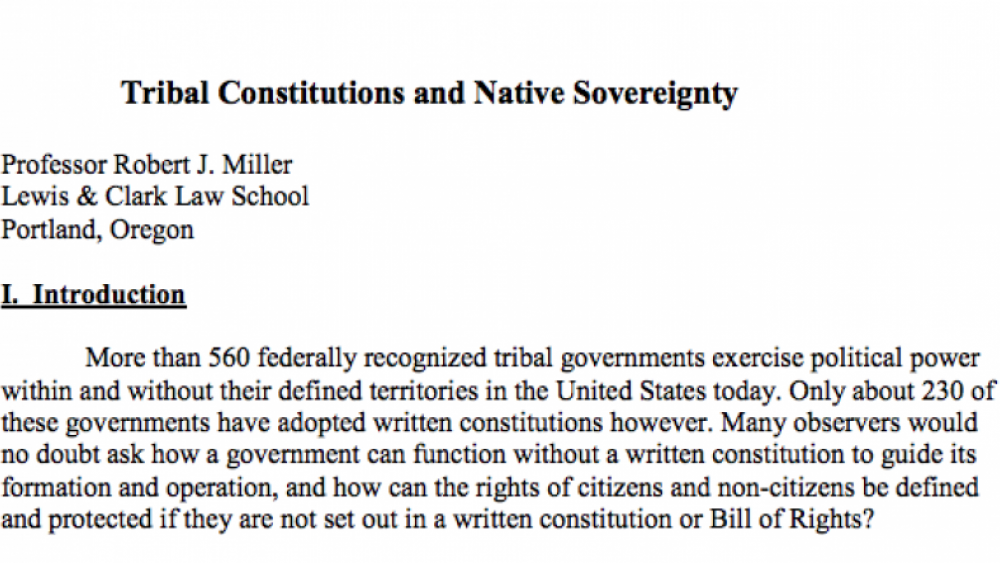ARTICLE VI - LEGISLATIVE BRANCH
Section 1. Composition. The Legislative Branch shall be comprised of one Legislature. The Legislature shall consist of four Cheyenne Districts and four Arapaho Districts. Each Cheyenne District shall have one Cheyenne Legislator and each Arapaho District shall have one Arapaho Legislator, for a total of eight District Legislators. The Legislature shall select a Speaker from among its members.
Section 5. Powers. (a) Legislative power shall be vested in the Legislature. The Legislature shall have the power to make laws and resolutions in accordance with the Constitution which are necessary and proper for the good of the Tribes. All actions by the Legislature shall be embodied in a written law or resolution. All actions by the Legislature shall be made by a majority vote of the Legislators present unless otherwise specifically indicated by this Constitution. Tie votes in the Legislature shall be decided by the Governor. Laws and resolutions which have been enacted shall remain valid until amended or repealed.
Additional Information
Cheyenne and Arapaho Tribes. 2007. "Constitution of the Cheyenne and Arapaho Tribes." Concho, OK.




